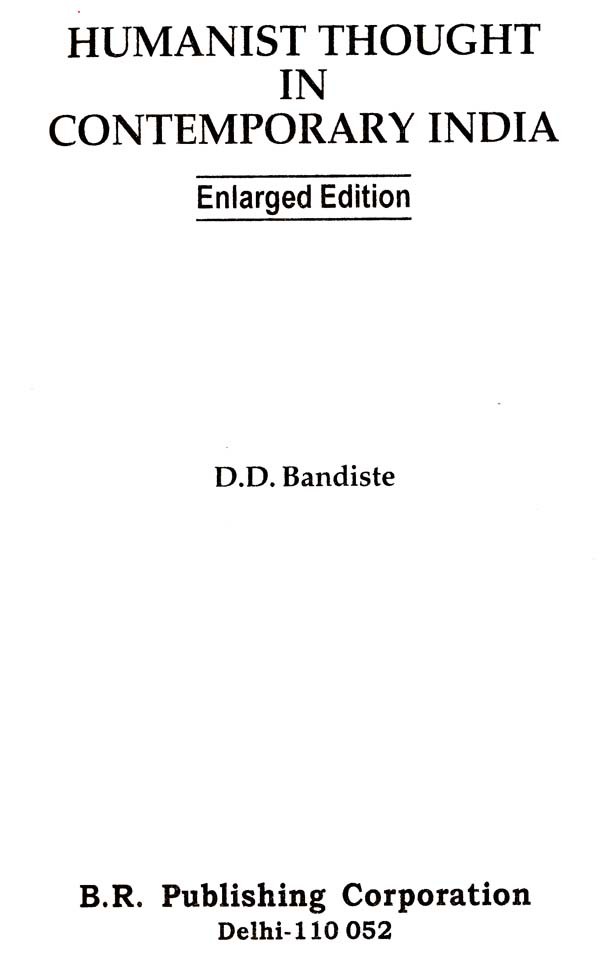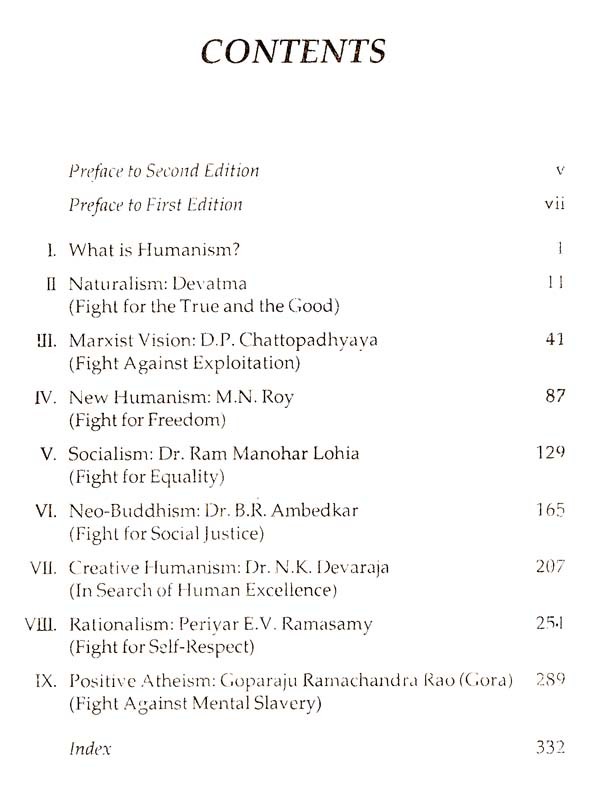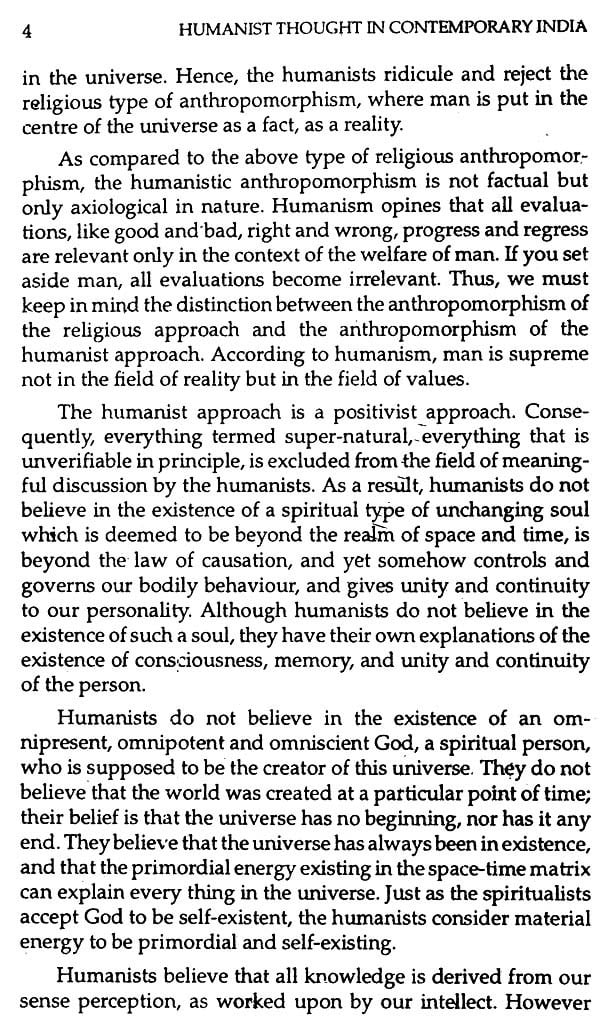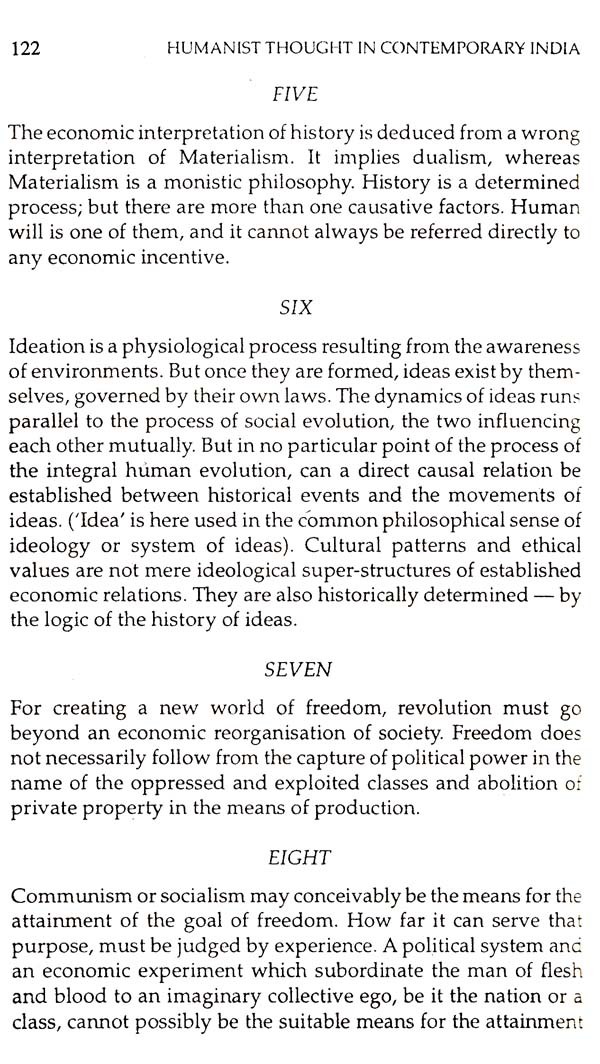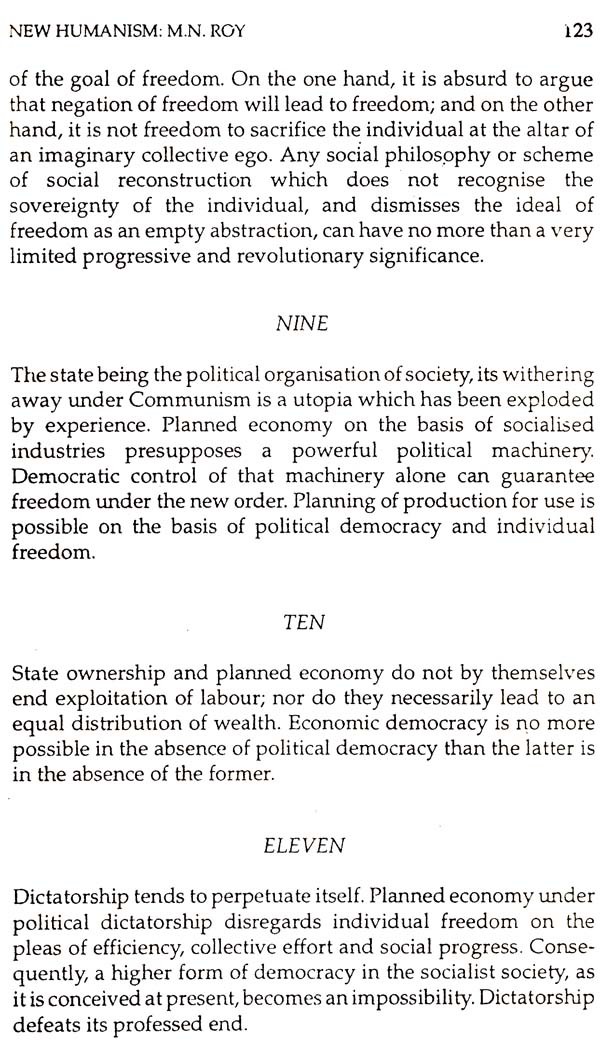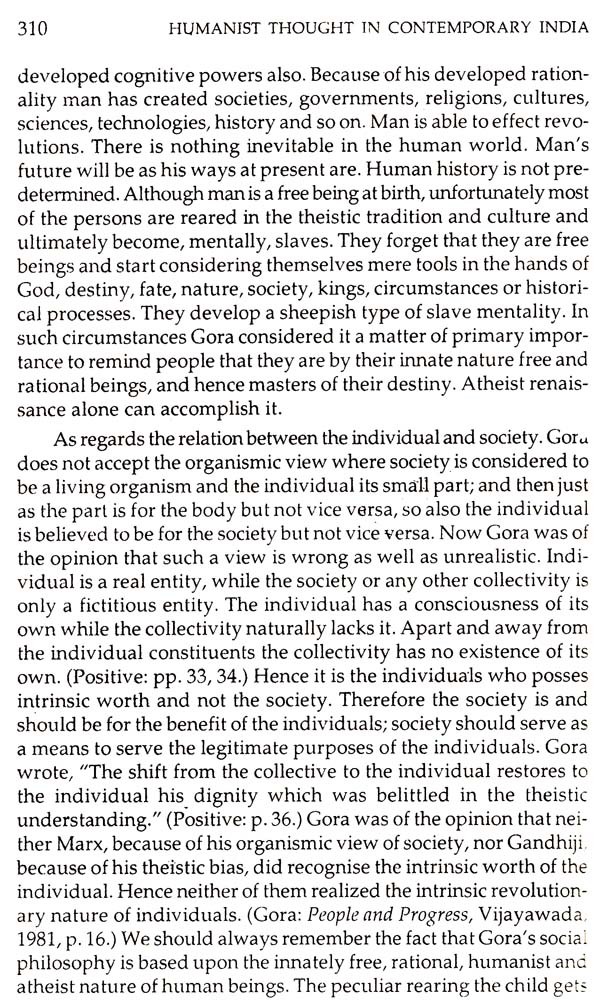
Humanist Thought in Contemporary India (Enlarged Edition)
Book Specification
| Item Code: | AZE494 |
| Author: | D.D. Bandiste |
| Publisher: | B.R. PUBLISHING CORPORATION |
| Language: | ENGLISH |
| Edition: | 2008 |
| ISBN: | 9788176466066 |
| Pages: | 344 |
| Cover: | HARDCOVER |
| Other Details | 9.00x6.00 |
| Weight | 550 gm |
Book Description
The author has, for his study, chosen only one thinker from the various humanist trends in India. Devatma (Naturalism), D.P. Chattopadhyaya (Marxism), MN. Roy (New Humanism), Ram Manohar Lohia (Socialism), Dr. B.R. Ambedkar (Neo Buddhism), Dr. N.K. Devaraja (Creative Humanism), Periyar E.V. Ramasamy (Rationalism) and Gora, i.e. Goparaju Ramachandra Rao (Atheism). General principles of Marxism as practised in communist countries are also stated.
The general humanist aim is to create a spiritually enlightened society consisting of spiritually liberated persons.
Although God, omniscience and immortality are not worthwhile pursuits for the humanists, yet, the readers will find that the humanist plans for a happy human life are quite ingenious, lofty and ennobling.
After teaching philosophy in various colleges affiliated to various universities, he retired in 1981, as Professor of Philosophy, Govt. Arts and Commerce College, Indore (M.P.).
He attends various philosophical meets. His main interests are Rationalism and Humanism. He delivered the special endowment K.M. Hay lecture in Humanism at the World Philosophical Congress, New Delhi, 2000-2001. He was interviewed by the B.B.C. (Belfast, U.K.) in August 2000 for his views on religion.
Even in contemporary India, the number of humanist thinkers is quite large. Prominent among them are: Mahatma Jyotiba Phule, Rahul Sankrityayan, Periyar, Savarkar, Agarkar, M.N. Roy, Devatma, Ambedkar, Nehru, Narendra Dev, Jai Prakash Narayan, Lohia, D.P. Chattopadhyaya and Prof. N.K. Devaraja.
One way of dealing with the subject is to write about all of them. of course, in brief. But then the treatment becomes too sketchy and hence unsatisfactory. Therefore, I have chosen the other alternative of taking just one thinker from one branch of humanism, and pre senting him in some detail. And I still doubt that I have done justice even to these, since I have devoted just 30-40 pages to each thinker, while each one of them has written (many) thousands of pages. Obviously, it is not possible to cover everything that they have said in the one chapter that is devoted to each of them. I only hope that I have satisfactorily explained their main contributions as I understand them.
Indians are proud of their spiritual culture and condemn the Western life-style as materialist, animal-like, and so on. However, M.N. Roy found that the belief that the spiritual, Indian culture was superior to Western materialistic culture satisfied the vanity of the enslaved Indians who were defeated by the West in all the worldly fields, viz., political, economic, scientific, technological, military, and so on. The period mentioned above was especially marked by the teachings of Ramakrishna, Vivekananda, Dayananda, Raman Maharshi, Swami Ramateertha and many other spiritual stalwarts. Belief in the superiority of the spiritual Indian culture was also one of the essential symbols of patriotism. The Indian scene then was full of pride for the Indian religion and culture. This was the setting in which Devatma preached his heterodox type of naturalism. Naturally, he had to face stiff opposition, calumny, defamation, ridicule, threats to his life, hardships, and all types of difficulties.
**Contents and Sample Pages**
